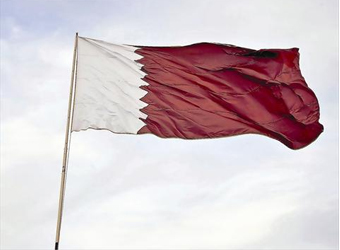Qatar’s foreign minister suggested Tuesday that measures taken by Saudi Arabia and three other Arab states in their diplomatic rift with Qatar had hurt the U.S.-led fight against Islamic State, according to the text of an interview with CNBC.
Saudi Arabia, the United Arab Emirates, Egypt and Bahrain cut diplomatic and trade links with Qatar in June, suspending air and shipping routes with the world’s biggest exporter of liquefied natural gas, which is also home to the region’s biggest U.S. military base.
The four countries have said that Qatar supports regional foe Iran and Islamists, charges Doha’s leaders have denied. All countries involved in the dispute are U.S. allies
Asked if the fight against Islamic State had suffered because of the crisis, Qatari Foreign Minister Sheikh Mohammed bin Abdulrahman al-Thani said, “Definitely yes,” according to the CNBC International transcript.
He said most of Qatar’s food and medicine supplies, some of which would go to the U.S. Al Udeid air base, normally came via its land border that is now blocked by its bigger neighbor.
The airspace blockade meant that Qatari aircraft providing logistical support for the base could only fly north from Qatar toward Iran, the minister said, and Qatari officers participating in U.S.-led activities against Islamic State or working with Bahrain-based U.S. Fifth Fleet were expelled.
“So there are a lot of things which undermine … the global efforts in countering … Daesh,” Sheikh Mohammed said, referring to Islamic State by an Arabic acronym.
The minister said his country sought to resolve the crisis through dialogue, but Saudi Arabia wanted to destabilize Qatar.
“They are into escalation, they are into thinking about regime change and other things,” Sheikh Mohammed said.
Saudi Arabia and the UAE have denied seeking to depose Qatar’s government.
Kuwait has been trying to resolve the dispute among its fellow Arab countries and U.S. President Donald Trump has also said he would be willing to mediate.
Source: Reuters
